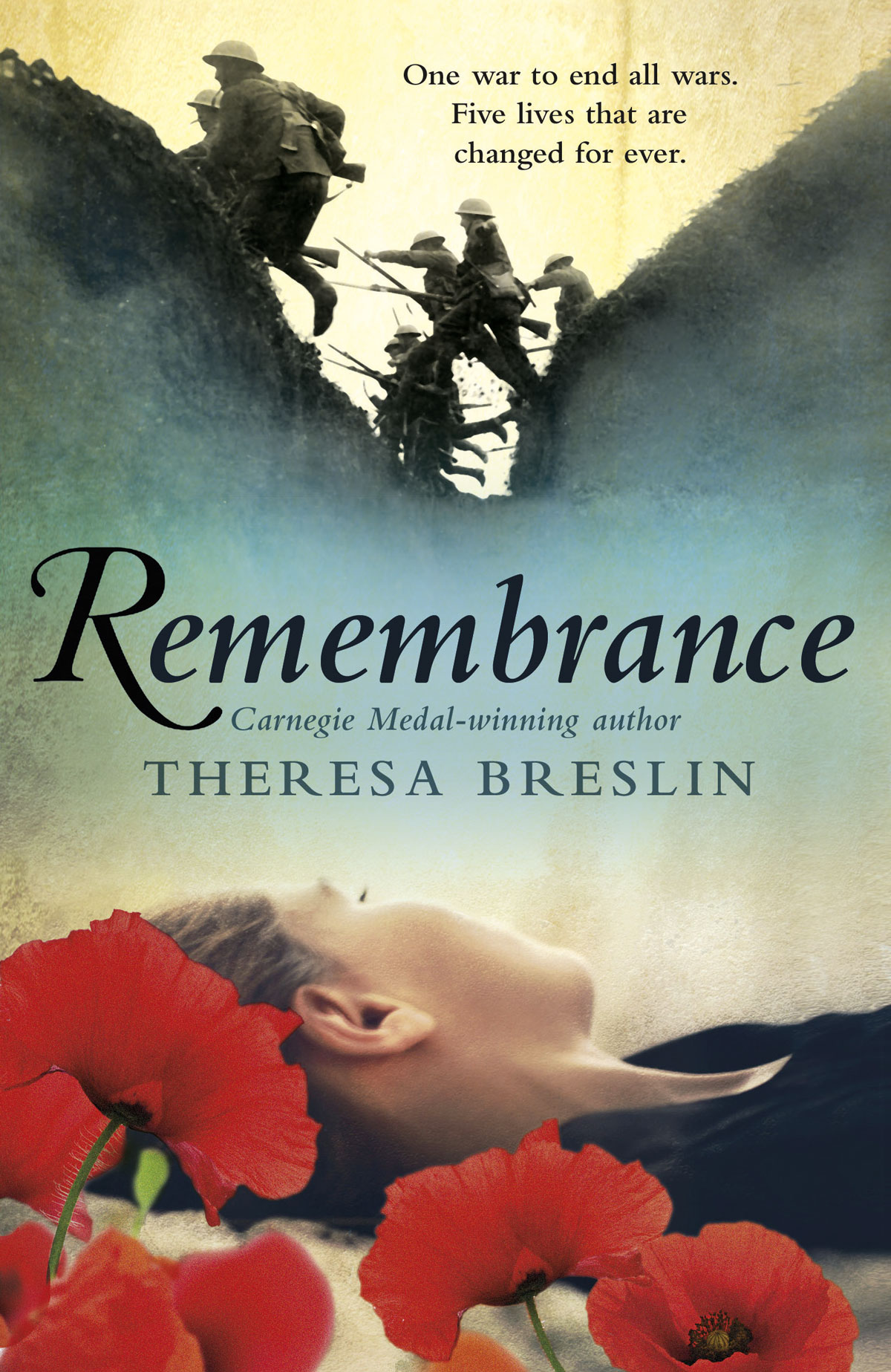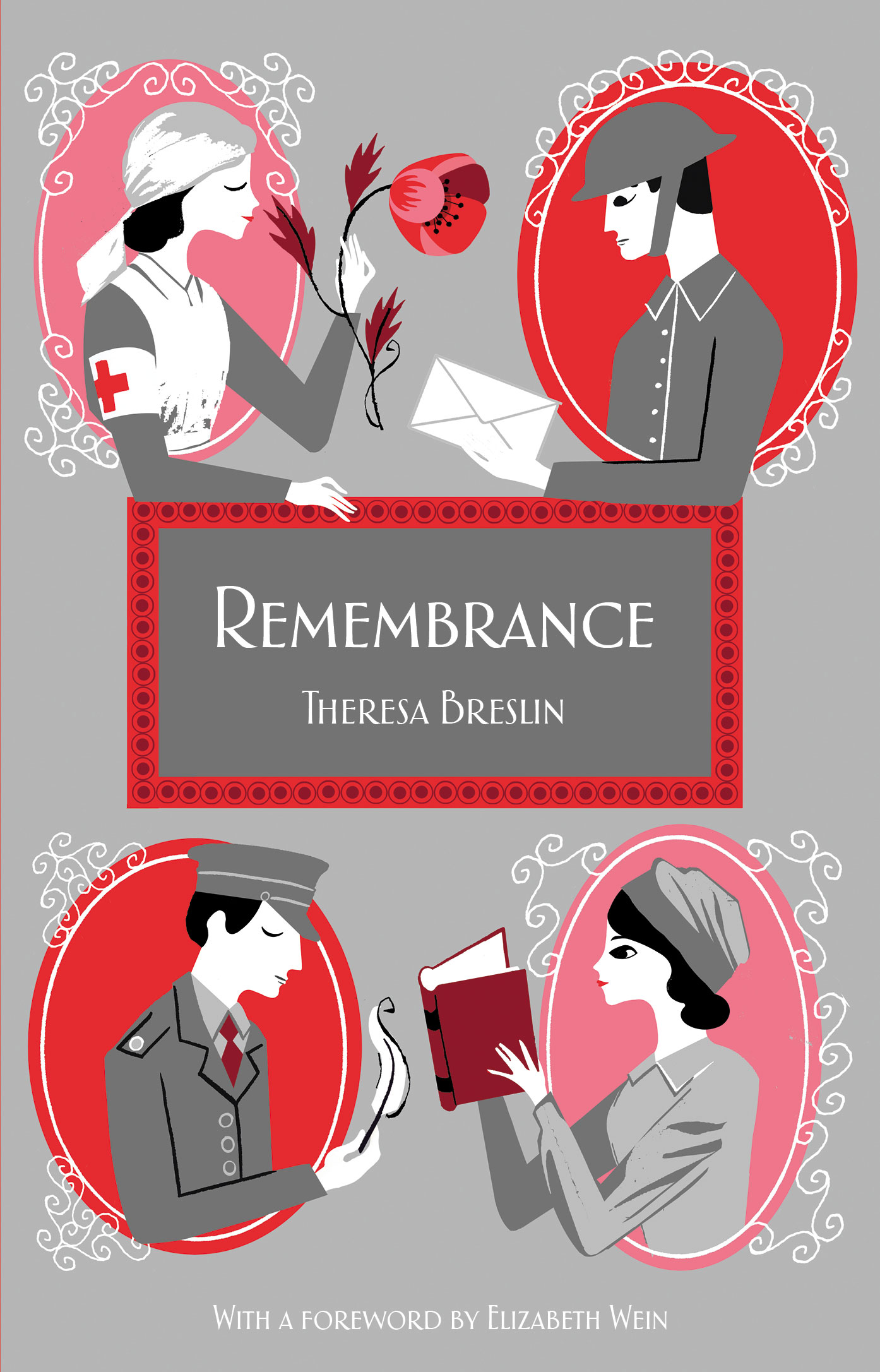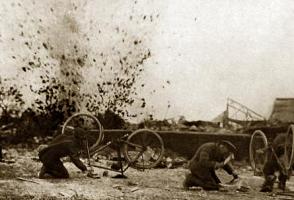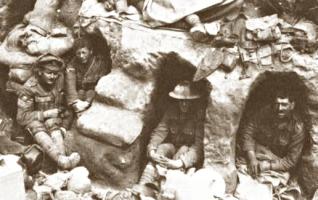‘The novel is harrowingly pertinent in detailing the grief for those left behind, which Breslin describes with poignant delicacy’
Julia Eccleshare, Guardian
‘Considerable research went into the writing of this novel but at no cost to the characterisation and plotting. Breslin has definite points to make about the nature of war but she never turns what is an involving and moving story into a polemic.’
Sunday Herald
‘an epic novel which retells a very familiar story, but through fresh eyes for a new generation. The cover is very striking…This is an important novel which will help to ensure that we shall continue to remember’
Teresa Scragg, The School Librarian
‘this book provides a moving and well-researched chronicle of the lives of ordinary young people of the time caught up in the remorseless war machine, a chronicle which brings the whole period to vivid life for the young people of today’
Anita Rowe, Writers’ News
‘A well-written and thought-provoking book for young adults’
The Good Book Guide
‘…a brave and ambitious novel… What Eric von Remarque, Pat Barker and Sebastian Faulkes among others have described for adults, Theresa Breslin describes for younger readers… Breslin has succeeded magnificently in offering her readers a taste of a war supposedly fought to end all wars.’
Valerie Coghlan, Children’s Books Ireland
‘Meticulously researched and beautifully written… Breslin constantly challenges her readers to consider every aspect of war in a moving and epic story’
Scottish Book Trust Shelf Life
‘I have no hesitation in recommending this beautifully written and well crafted book which is pervaded by an overwhelming sense of sorrow and loss, but a book that will capture and spellbind mature readers’
Pat Tate, Carousel
‘Remembrance is… literary, and… multifaceted…It’s an approach that weaves class distinction, illiteracy, female emancipation and complex issues of war with dexterity. This isn’t a cosy curl-up kind of a novel – it’s a full-on shake-up, a ringing exhortation to care.’
Lindsey Fraser, The Glasgow Herald
‘The exploration of love and coming to terms with the adult world is explored in Theresa Breslin’s romantic historical novel, Remembrance.’
Kit Spring, The Observer
‘An astonishing portrayal of five young lives during the frightening days of the First World War… not an easy novel to read because it feels so incredibly real, but somehow Breslin’s light touch and beautiful prose give the harrowing sights and sounds of the war a much more human feel. This is a novel that will stay with me for a long time’
Nic Knight of Ottakar’s, TheBookseller
‘The most moving and thought-provoking novel for older readers that I have encountered for some time’
Tara Stephenson of Waterstone’s, The Bookseller
‘…moving, incredibly well informed and a fascinating exploration of the different way in which people respond to war.’
Linda Saunders, Children’s and Young People’s Librarian
‘…a wonderful book. Very beautifully written and pulled on my heartstrings. A very powerful yet easily readable account of this time in history’
Ravinder Willson, London and South East YLG rep
‘An immensely readable, passionately written epic, with an involving, fast-moving plot constantly challenging readers’ assumptions’
Guardian
‘The character development, the range of experiences and the impressively researched backgrounds…. an epic flavour… young readers will find themselves swept along with Breslin’s engaging cast into a world where duty and compassion must somehow co-exist’
Linda Newbery, Times Educational Supplement
‘A truly epic feel, a rarity in British books for teenagers… already Remembrance is being hailed as Breslin’s best book yet… it could be the book that launches her into the superleague of British children’s writers’
Glasgow Herald
‘… follows the lives of three boys and two girls from two very different families. Breslin brilliantly weaves the themes of emancipation, class, love, propaganda and the machinations of war into the story of how these young lives are changed with a light touch that belies the seriousness of the subject. A Pat Barker for young readers’
Financial Times
‘They will never forget… Nor will anyone who picks up this novel’
Bob Orr in Writers’ News, (full page feature on Theresa and the book)
“Remember.” This is the word etched on numerous plaques in countless graveyards in France and Belgium. It asks visitors to the sites to remember those who gave their lives in the Great War, the soldiers, the elderly and the very young…
This book is the story of five young people at the time of the First World War. A young lady and her pacifist brother, young twins from their local shop and their smaller brother, all affected to varying degrees by the onset of war. The story of Red Cross nurses and soldiers of the Somme, death and atrocities, madness and valiant deeds. Remembrance will stick in your head, make you cry – and, trust me, you will remember.
From Children’s Express, by Jennifer Matthews, 17, Beighton
Set during the First World War, the events are seen through the eyes of a group of teenagers from two families with different social backgrounds. Despite their social differences, the horror and futility of war engulf them, their friends and their whole Scottish village. Young men, like John Malcolm and his brother Alex, are seduced by the glory of war and cannot wait to join up. Charlotte and Maggie want to do something worthwhile, so they train to be nurses and are sent out to France. Through their eyes the appalling truth of trench warfare and the devastating reality of war is seen daily as they nurse the wounded soldiers. Francis, Charlotte’s older brother, struggles with his conscience about the senselessness of war. It is only when the survivors come back that they realise that there was no glory – only horror and death on a large scale. They also know that nothing will ever be the same again. This is a book that can be enjoyed by young adults and adults alike, and, despite its grim subject matter, is hard to put down. Breslin’s beautiful prose gives the harrowing sights and sounds of war a human feel.
From Booktrusted News by DH
“This book tells the story of five young people from a Scottish village and how the First World War affected their lives. Francis and Charlotte are the children of the local gentry: Maggie, John Malcolm and Alex those of the village shopkeeper. The story opens with fifteen-year-old Charlotte explaining to her mother why she feels she must go to train as a nurse rather than content herself with more ladylike war work. It is the beginning of an upheaval which will engulf the entire community as the war absorbs more young lives and the old social order begins to break down.
Romance and friendship binds the two families, but the war forces them apart. Maggie goes to work first in the munitions factory, then as a nurse with Charlotte in France. Her two brothers are eager to join up, but Charlotte’s brother, the older and more thoughtful Francis, is against the war and at first refuses to go. All of them experience the horrors of war, the young men in the trenches and on the battlefield, and the girls through their experiences of nursing. The ending, in which the loss and change to the lives of everyone in the village becomes clear, is very moving.
Theresa Breslin has done a great deal of research, but it is all blended into the narrative and never intrudes. This is a quiet book, written in clear, precise prose with no unnecessary drama; Theresa Breslin allows her characters to speak for themselves. It has great strength and dignity and is all the more powerful as a result. I cannot praise it too highly.”
From The Historical Novels Review by Ann Turnbull
“A very special book for older children, telling the story of how five Scottish teenagers become involved in the horrors of the First World War.
Heroics, poetry, the first feelings of love, and the brutal realities of life (and death) in the trenches are all graphically explored.
Beautifully written, this is Birdsong for children (though adults will enjoy it too). ”
From Carlisle News & Star
Remembrance Audio CD
Theresa Breslin’s First World War epic Remembrance is now available on CD and it takes a whopping seven hours to get through the six CDs, but every minute is pure joy. Wonderfully prosaic, the story is set in Scotland in 1951 and details the lives of a group of teenagers from two families who live in a small community.
The children from the manor house are Francis, a university graduate and an objector to the war who resists signing up for as long as he can, and his sister Charlotte, who is forced to grow up quickly when she decides to become a nurse.
Then there are the twins, John Malcolm and Maggie, whose parents own the village shop. John is desperate to go to the front, but has to bide his time until he is 18. Maggie joins Charlotte in nursing.
It is an agonising, poignant tale of love and war, with the full horror of life in the trenches, the struggle to survive when fighting for king and country and the pain of those left behind.
Read beautifully by Frances Thorburn and Gary Bakewell, Remembrance, aimed at children aged 12 and over, will long stick in the mind for its astounding colour and description. Now we know how our grandparents and great-grandparents felt when this war to end all wars was fought.
From Birmingham Post by Jayne Howarth
A thoughtful, compelling, and poignant novel whose subject is war, and the pity of war.
From Publishing News



 The Matron assigned Charlotte to basic duties of removing the soiled bandages of the incoming wounded men. ‘Unwrap the dressings,’ said the Matron, ‘and a nurse will come to clean and redress the wound. If you need help, ask. Do not try to cope if you cannot. It only creates more problems.’
The Matron assigned Charlotte to basic duties of removing the soiled bandages of the incoming wounded men. ‘Unwrap the dressings,’ said the Matron, ‘and a nurse will come to clean and redress the wound. If you need help, ask. Do not try to cope if you cannot. It only creates more problems.’ As the afternoon passed Charlotte lost all awareness of time. There were so many of them, and they kept coming. Men from all different regiments, Irish Horse, Coldstream Guards, North and South Lancashires. At one point she raised her head and saw that they had begun to place beds down the centre of the ward. If this is happening so far from the Front, what must it be like then in France? she wondered.
As the afternoon passed Charlotte lost all awareness of time. There were so many of them, and they kept coming. Men from all different regiments, Irish Horse, Coldstream Guards, North and South Lancashires. At one point she raised her head and saw that they had begun to place beds down the centre of the ward. If this is happening so far from the Front, what must it be like then in France? she wondered.